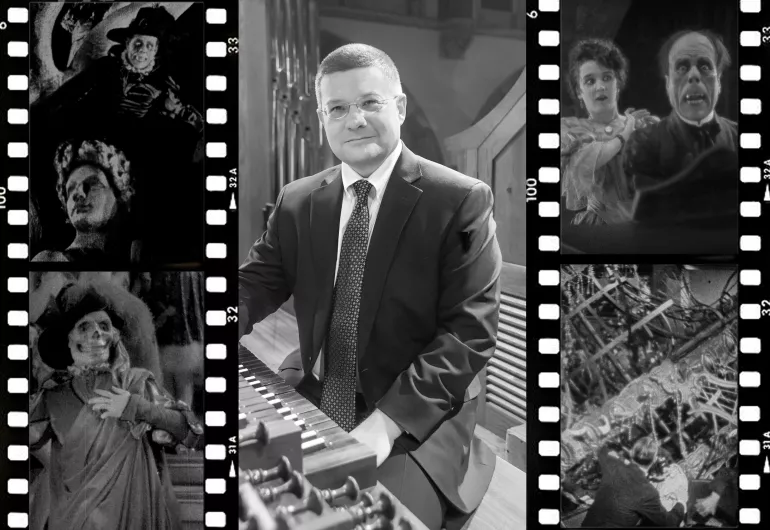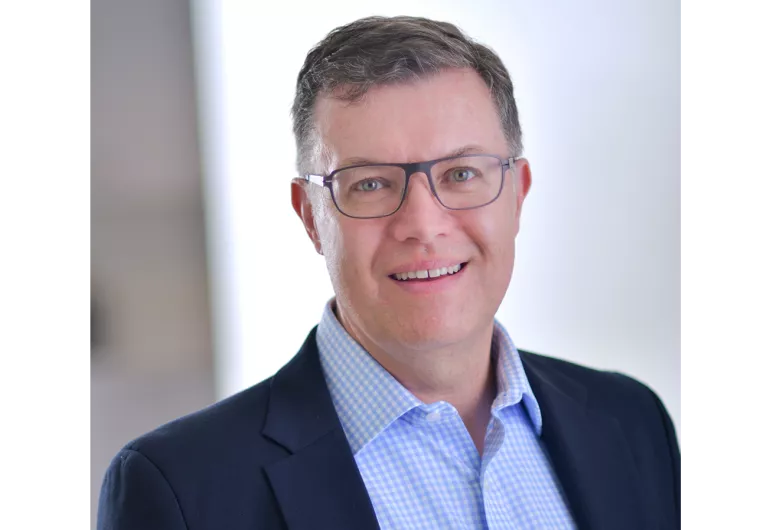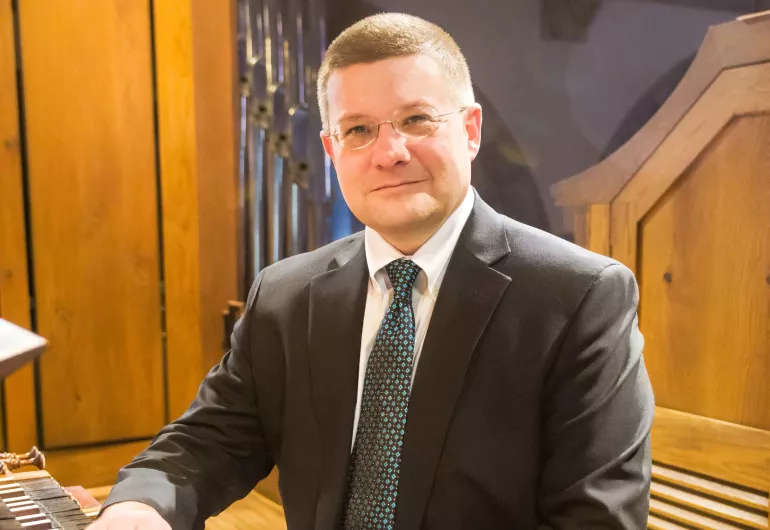Oct 2-9, 2022
Program Notes for The Phantom of the Opera: Silent Film with Live Music Featuring Aaron David Miller, organ
Mobile-friendly Program


In lieu of live captions for this event, please find the transcript for the live opening content below.
Kristen Brodgon: Hello everyone, and welcome to Northrop. My name is Kristen Brogdon. I’m Northrop’s director of artistic and community programs, and I’m delighted to welcome you today, whether you’re here in person or joining us online.
Before we begin, I first want to acknowledge that the University of Minnesota Twin Cities is built within the traditional, ancestral, and contemporary homelands of Dakota people. Northrop and the University are committed to collaborative relationships with the sovereign Tribal Nations of Minnesota. This land acknowledgment is one of the ways in which we work to educate the campus and community about this land and our relationships with it and each other. I also hope you’ll find time to visit our exhibit Why Canoes in our upstairs gallery to learn more about three Indigenous communities in Minnesota.
I’m thrilled that you’re here with us for this celebratory event to mark the opening of this year’s music series and our Northrop Presents season. This is our first foray into silent film with organ accompaniment, so if you enjoy it, please tell your friends. The on-demand version will be available for one week, and our next silent film event with live music is on October 18. Hysteria, Hypnosis, and Hallucination is a screening of silent cinema shorts featuring local music ensemble Dreamland Faces. It promises to be the perfect combination of spooky and cool and will be available on demand through Halloween.
Northrop is grateful that this performance is supported in part by the voters of Minnesota through a Minnesota State Arts Board Operating Support grant, thanks to a legislative appropriation from the arts and cultural heritage fund.
I also want to express my gratitude to two groups of organ enthusiasts, with many members in attendance. The Friends of the Northrop Organ laid the foundation for our Northrop Organ Advisory Board, and without the care and advocacy of both groups, we would not be here today to hear this glorious instrument. Thank you to the Friends and to the past and current members of our Organ Advisory Board.
I’ll round out the thank yous with appreciation for our audience. We are so happy you are with us, and hope you enjoy the program. Please join me in a warm Northrop welcome for Aaron David Miller, who will play the organ onstage alongside today’s screening of The Phantom of the Opera. Welcome, Aaron!

Silent Films and Music
By Aaron David Miller
Silent films were never intended to be silent. From the earliest days, films were accompanied by live musicians. Small theaters would employ pianists and organists to accompany the film. Larger theaters might hire a small orchestra or band to play. In addition, audiences were often talking, cheering, hissing, and booing at the various characters on the screen. Going to a silent film could be an interactive experience.
In the earliest days of film, keyboardists would improvise to the dramatic content of the film. Oftentimes they would incorporate classical themes, opera themes, and the popular music of the day. The accompanist would try to capture not only the dramatic content, but also the setting. If a film was set in Egypt, the accompanist might rely on Egyptian themes for the film.
Towards the end of the silent era, film studios started to send out musical themes with the film canisters to each theater. The themes were not a complete film score, but some musical suggestions that could guide the keyboardist through the film. Unfortunately, most of these theme sheets are lost. They were not considered valuable enough to preserve.
In the 1920s, music publishers began printing large anthologies of keyboard music intended for film. The most famous of these was Motion Picture Moods published by G. Schirmer in 1920. Interestingly, the anthology is filled with as many opera and classical themes as popular tunes of the era.
Accompanying a film is different with every performance. Not only does the performer react musically to the film, but also responds to the reactions of the audience. No two film screenings are the same. Every show is different.



The Northrop Advisory Board is committed to the growth and awareness of Northrop’s mission, vision, and the continued future of presenting world-class dance and music in our community. If you would like more information about the advisory board and its work, please contact Cynthia Betz, Director of Development, at 612-626-7554 or betzx011@umn.edu.
Thank you for supporting Northrop!
At Northrop, we believe in connecting great artists and ideas with our community and to a new generation of audiences. Your gift helps make memorable arts experiences possible by supporting extraordinary performances and new arts commissions, and helping ensure accessibility to everyone through live-streamed programming, outreach to diverse communities and subsidized student tickets. Our Friends are at the center of Northrop’s biggest ideas and brightest moments on stage.
Become a Friend of Northrop today!
Donate online at northrop.umn.edu/support-northrop
Ways to Give:
To learn more about supporting Northrop please contact:
Cynthia Betz
betzx011@umn.edu or 612-626-7554
A special thank you to our patrons whose generous support makes Northrop's transformative arts experiences possible. Make your mark on Northrop's future by becoming a Friend today, learn more by visiting northrop.umn.edu/support-northrop.
We gratefully acknowledge the support from, Arts Midwest Touring Fund, Minnesota State Arts Board, Marbrook Foundation, National Endowment for the Arts, and New England Foundation for the Arts.
We extend a special thank you to our event sponsors the Graduate Hotel Minneapolis, PNC Bank, and RBC Wealth Management.
10,000+
5,000+
2,500+
1,000+
500+
250+
100+
Up to $99
Up to $99 (continued)
This season’s listing is current as of 9/26/22
Please contact Trisha Taylor at taylort@umn.edu if you have any corrections or questions.
Thank you to the generous donors who continue to support programming for Northrop’s beloved Aeolian-Skinner Organ. It is because of you that this magnificent instrument’s voice will be enjoyed by many for years to come.
The Heritage Society honors and celebrates donors who have made estate and other planned gifts for Northrop at the University of Minnesota.
*Deceased
This activity is made possible by the voters of Minnesota through a Minnesota State Arts Board Operating Support grant, thanks to a legislative appropriation from the Arts and Cultural Heritage Fund.